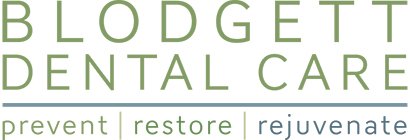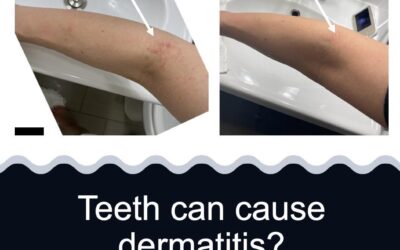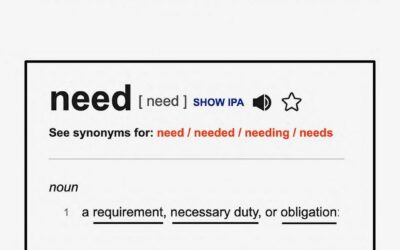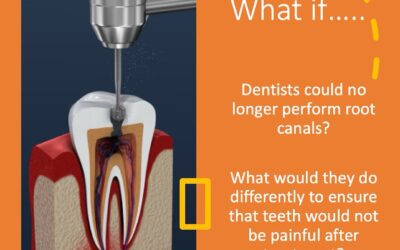What You Need To Know About Pregnancy Gingivitis

If you’re pregnant, our team at Blodgett Dental Care wants to offer you big congratulations! This exciting time in your life comes with many new joys and things to think about. As a result, it’s easy to accidentally overlook your oral health and the role that it plays on your pregnancy.
Maintaining good dental health before, during, and after pregnancy is incredibly important. Time and time again, research shows that women who don’t take proper care of their oral hygiene put themselves, and their baby, at risk during pregnancy.
Failing to take care of your oral health not only contributes to pregnancy gingivitis–an extremely common dental issue in expectant mothers–it can also lead to negative pregnancy outcomes.
As a holistic periodontal expert in Portland, my focus is on optimizing your whole body health, including your teeth and gums, not just treating your dental symptoms. I’m also a researcher and published author and have spent time studying the relationship between periodontal disease and poor pregnancy outcomes.
In this blog post, we’ll take a closer look at some of the things learned from this research. We’ll review the risks and concerns of poor dental health on your pregnancy and important information about pregnancy gingivitis. Finally, we’ll look at how to ensure your dental health is contributing to a happy, healthy pregnancy.
Let’s get started!
Pregnancy Gingivitis
Neglecting your oral health is dangerous for both you and your baby. As scientific research continues to expand, it’s clear that bacteria living under the gums can cause negative pregnancy outcomes. This buildup of bacteria can lead to pregnancy gingivitis.
What is Pregnancy Gingivitis?
Clinically speaking, pregnancy gingivitis is similar to non-pregnancy gingivitis. Those who suffer from this form of gum disease experience the following symptoms:
- Bright red and inflamed gums
- Tender gums
- Bleeding gums when brushing and flossing
Pregnancy gingivitis differs from general gingivitis because it is the result of hormonal shifts in the body caused by pregnancy. These hormones cause an increased blood flow to gum tissue, making your gums much more sensitive to the bacteria in plaque. As plaque builds up on your teeth, your gums react by becoming inflamed.
Who Is At Risk For Pregnancy Gingivitis?

Women who exhibit signs and symptoms of periodontal disease before pregnancy are at a much higher risk for suffering from pregnancy gingivitis. However, even if your teeth and gums appear to be in perfect health, you may still be susceptible to these symptoms.
Many women are at risk for periodontal disease but don’t show any symptoms prior to pregnancy. Once you become pregnant, your body has to channel the majority of its immune resources to the development of your child. This causes your mouth to lose a significant amount of its protective ability. Only then will you begin to experience active, symptomatic gum disease.
If you’re a mom-to-be who is suffering from pregnancy gingivitis, you’re not alone. This dental health issue is extremely common, especially during the second trimester. Almost half of moms-to-be will experience varying degrees of this disease. However, just because pregnancy gingivitis is common, doesn’t mean you should take it any less serious.
The Effects of Pregnancy Gingivitis
Pregnancy gingivitis is the sign of poor periodontal health. This lack of health in your teeth and gums can lead to serious risks for both you and your baby.
Periodontitis Causes Infertility And Tooth Loss
For mothers, failing to treat pregnancy gingivitis will result in a more serious form of gum diseases called periodontitis. Periodontitis will not only harm your gums, but also the bone supporting your teeth. This type of damage can lead to tooth loss.
If you are a young woman who wants to get pregnant in the near future, you should also be aware of the effects of poor dental health on your ability to conceive. A new study revealed that periodontitis can delay conception in young women. In fact, women with periodontitis were 3 times more likely for not becoming pregnant compared to their counterparts.
Preterm Labor, Diabetes, and Miscarriage
The effects of pregnancy gingivitis and periodontitis on your baby are also very serious. Infected and swollen gums harbor disease-causing bacteria. This bacteria lives under the gums and can easily enter your bloodstream, causing problematic issues for your baby.
Researchers believe gum bacteria can signal the body to go into labor sooner than expected. In fact, one study found that 25% of preterm delivery mothers had periodontitis. Other adverse pregnancy outcomes due to poor oral health include preeclampsia, gestational diabetes, and even fetal loss.
Thankfully, if treated early, pregnancy gingivitis is completely reversible. With proper oral hygiene and dental care, most pregnancy gingivitis issues can be resolved without any harmful effects on you or your baby.
Maintaining Good Periodontal Health During Pregnancy
Being diligent with your dental health may take some effort, but it’s very important– especially during pregnancy. The first step is to educate yourself about why your dental health is important to the health of your baby. Having a solid understanding of the risks of poor periodontal health on your pregnancy will make it easier to ensure taking care of your teeth and gums stays a top priority.
Next, it’s time to revamp your oral health routine. There are 4 specific actions you need to incorporate into this routine to reduce serious periodontal issues such as pregnancy gingivitis.
Brush After Every Meal
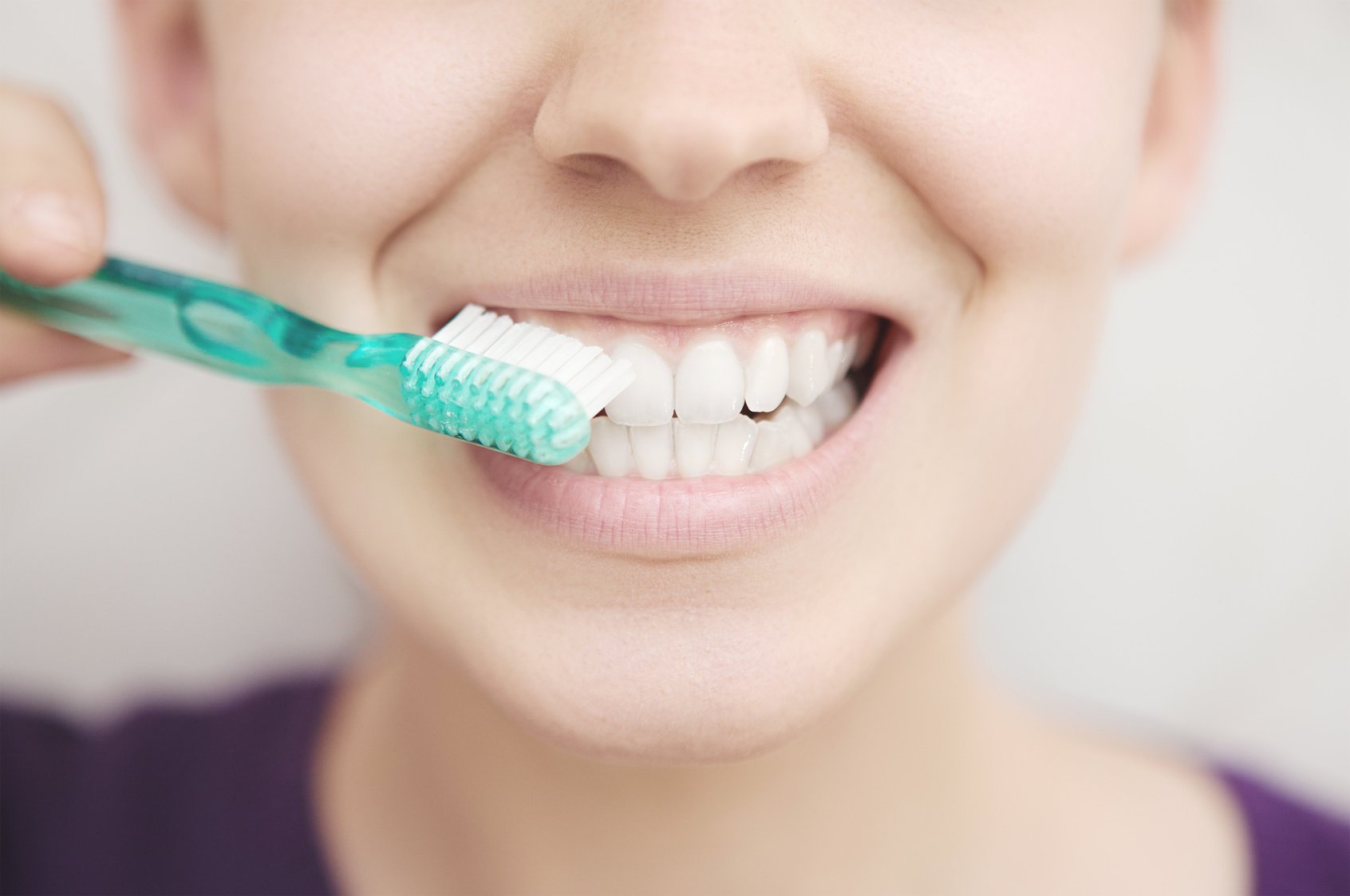
Brush your teeth thoroughly at least twice a day–after every meal is best. However, if you experience morning sickness, DO NOT brush your teeth after vomiting! The harsh acids that have just landed on your teeth will have weakened your enamel making erosion more likely. You are better off rinsing with a mixture of 1 tsp. of baking soda in one 12oz. glass of water. This will neutralize the acidity and keep your teeth from losing precious minerals. For regular brushing, spend at least two minutes brushing taking extra time to make sure you get rid of plaque in those hard-to-reach areas.
Floss Regularly

Floss at least once a day. You may be tempted to skip this step, but make it a priority. Flossing removes plaque buildup, clears away bacteria, and is a vital step in preventing pregnancy gingivitis. It’s like exercise for your gums!
Eat A Healthy, Balanced Diet

Incorporating lots of fruits and vegetables that are high in antioxidants into your diet is an excellent way to help your body fight off gum disease of all kinds. Another way to ensure good dental health (whether or not you’re pregnant) is to avoid too many sugary snacks.
Schedule Regular Dentist Checkups
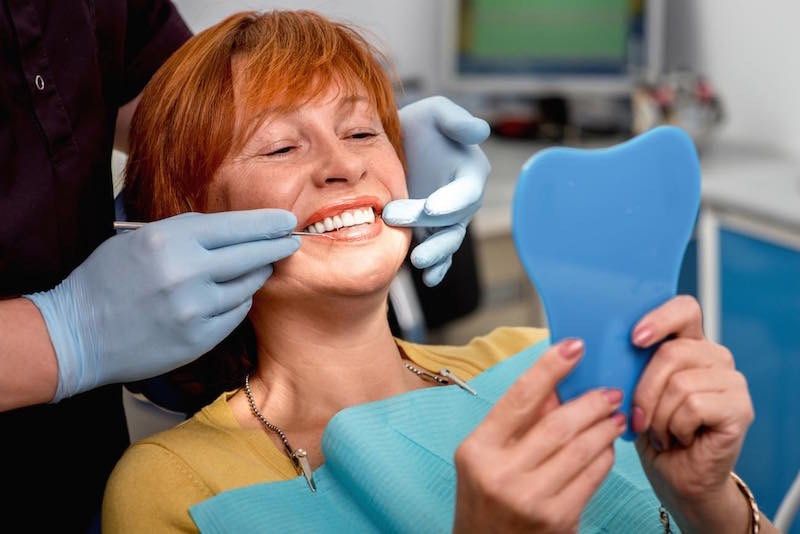
Remember, even if you don’t exhibit symptoms of periodontal disease before pregnancy, you may still be at risk. If pregnancy is in your future, talk to your dentist about how you can head into this chapter of your life in the safest way possible.
During pregnancy, commit to seeing your dentist and dental hygienist on a frequent basis. Not only will your dental team help monitor your oral health, they’ll provide feedback on your teeth cleaning habits and make sure you’re using the right tools to fight plaque and disease-causing bacteria.
When To Call Your Dentist
Regular, preventative dental care is always important, but especially so before and during your pregnancy. Your dentist is a critical part of your pregnancy wellness team. If it’s been a while since you’ve seen the dentist, schedule an exam and cleaning right away. Let your dental team know how far along you are in your pregnancy so they can provide you with the best advice. With today’s non-invasive gum therapy treatment such as Perio Protect trays and soft tissue lasers, your gums do not have to experience gingivitis. The actual source of the inflammation can be specifically treated using laser light and hydrogen peroxide gel in custom-fitted trays!
A Note About Silver Fillings

An increasing number of studies show that the mercury from silver dental fillings is extremely dangerous for pregnant women.
The Mercury in silver fillings has the ability to pass through the placental barrier and reach the fetus. Additionally, Mercury can pass into your breast milk and then into your baby while nursing. Mercury exposure in the fetus can lead to a high risk of infertility and may also increase the risk of having a child who is mentally impaired.
A large portion of the population (50%!) is said to have “silver” (mercury) fillings. If you’re among them, it’s important to talk to your dentist and consider having these fillings replaced with a safer, non-toxic material. And it is critical when having a toxic substance like mercury removed from your mouth that the highest safety standards be followed. As the first SMART-certified dental office in Oregon (Safe Mercury Amalgam Removal Technique), we ensure the greatest safety for you and your developing child. Keep an eye out for a future blog post where we’ll take a closer look at the risks of Mercury fillings.
Have More Questions About Periodontal Health During Pregnancy?
There are so many reasons for maintaining good oral hygiene, and especially so if you plan to get pregnant. Periodontal diseases such as pregnancy gingivitis, as well as the negative effects of silver fillings, are real and serious issues of which you should be aware.
If you’re pregnant and concerned about pregnancy gingivitis, periodontitis, or another aspect of your dental health, make an appointment at Blodgett Dental Care today. Together, we’ll outline the appropriate steps to optimize your whole body health and keep both you and your baby safe and healthy.
Read Also
Toxic Tuesday: Dermatitis CAN Be Caused By Issues In Your Mouth
Toxic Tuesday - Dermatitis CAN Be Caused by Issues in Your Mouth! Toxic Tuesday - Dermatitis CAN be caused by issues in your mouth! “Neural Therapy” illustrates the connection.“Neural Therapy” is defined as: The treatment of pain and other illnesses by finding and...
Nobody Needs a Root Canal
Wellness Wednesday: Nobody Needs a Root Canal Wellness Wednesday: The way we use words matters!One of the foundational pillars on which I have built Blodgett Dental Care is the concept of intentionality. This includes intentional thinking, behavior and language. In...
Toxic Tuesday: What If Root Canals Became Illegal?
Toxic Tuesday: What If Root Canals Became Illegal? Toxic Tuesday – What if……root canals became illegal? What would dentists do differently to help their patients avoid tooth pain and sensitivity? I want to offer some information that you may not have heard. Almost all...
